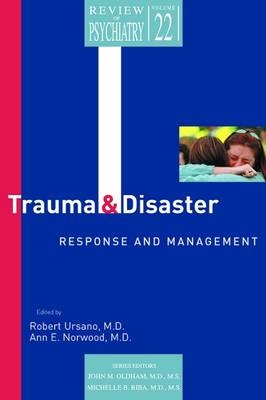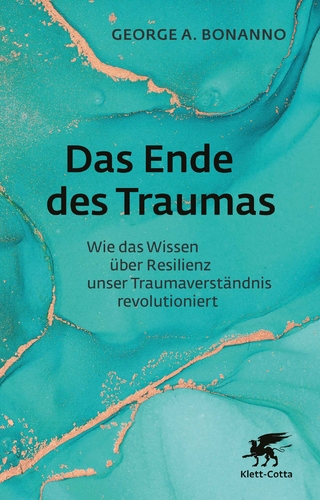
Trauma and Disaster Responses and Management
American Psychiatric Association Publishing (Verlag)
978-1-58562-115-6 (ISBN)
The editors of this powerful reference summarize our current understanding of the complex psychological, behavioral, and social responses to disaster, and present a compelling case for intensifying our focus on delivery and intervention efforts.
In just five chapters, 16 distinguished contributors examine the impact of trauma from the personal to the community level. This critical book
• reviews the neurobiologic and neuroanatomic responses to severe traumatic events, focusing on posttraumatic stress disorder to show how an initially adaptive response becomes maladaptive by producing long-term adverse consequences.
• discusses the psychiatric epidemiology of disaster, presenting a guide for clinicians in identifying and following groups at high risk for developing psychiatric disorders and an empirical blueprint for developing community interventions.
• details the impact of traumatic stressors on children, using the 9/11 terrorist attacks to illustrate many points and debunking the myth that children are more resilient than adults—thus reinforcing their assertion that we need to improve the delivery of mental health services to traumatized children.
• presents material from an international consensus conference on the psychological interventions following mass violence, reviewing the psychological impact of disasters (including risk and protective factors) and acute interventions for trauma (e.g., psychological debriefing, treatment of traumatic grief, pharmacotherapy, cognitive-behavioral therapy, and interventions for children).
• concludes with the special dilemmas posed by weapons of mass destruction, including chemical, biological, nuclear, radiological, and high-yield explosives, discussing the attributes that make these weapons especially effective as instruments of terror and offering recommendations on how nations can enhance preparedness against these weapons.
This volume is a must-read for educators, students, residents, clinicians, and social workers—in short, anyone interested in helping to heal the psychological fallout from traumatic events and disasters.
Robert J. Ursano, M.D., is Professor and Chairman in the Department of Psychiatry at F. Herbert School of Medicine of Uniformed Services University of the Health Sciences in Bethesda, Maryland. Ann E. Norwood, M.D., is Associate Professor and Associate Chair in the Department of Psychiatry at F. Herbert School of Medicine of Uniformed Services University of the Health Sciences in Bethesda, Maryland.
Contributors
Introduction to the Review of Psychiatry Series
Preface
Chapter 1. Neurobiological Mechanisms of Psychological Trauma
Chapter 2. Psychiatric Epidemiology of Disaster Responses
Chapter 3. Children, Disasters, and the September 11th World Trade Center Attack
Chapter 4. Early Intervention for Trauma-Related Problems
Chapter 5. Terrorism With Weapons of Mass Destruction: Chemical, Biological, Nuclear, Radiological, and Explosive Agents
Index
| Erscheint lt. Verlag | 8.6.2003 |
|---|---|
| Mitarbeit |
Herausgeber (Serie): John M. Oldham, Michelle B. Riba |
| Zusatzinfo | 3 Tables, unspecified |
| Verlagsort | VA |
| Sprache | englisch |
| Maße | 152 x 229 mm |
| Gewicht | 318 g |
| Themenwelt | Geisteswissenschaften ► Psychologie ► Traumatherapie |
| Medizin / Pharmazie ► Medizinische Fachgebiete ► Psychiatrie / Psychotherapie | |
| ISBN-10 | 1-58562-115-3 / 1585621153 |
| ISBN-13 | 978-1-58562-115-6 / 9781585621156 |
| Zustand | Neuware |
| Haben Sie eine Frage zum Produkt? |
aus dem Bereich


